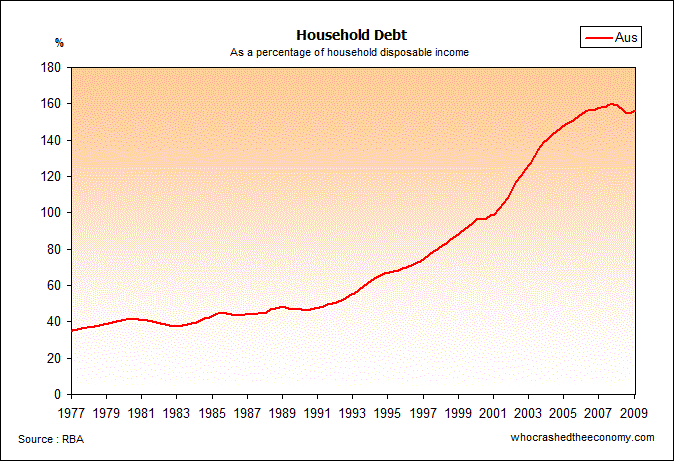On Tuesday this week, the Rudd Government took the lead. Against the many voting baby-boomer Mums & Dads that own Telstra shares, they announced major changes to Telecommunications laws which will see Telstra split into infrastructure and retail arms.
Communications Minister Stephen Conroy said “Today we are delivering historic reforms in Australia’s long term national interest”. While it’s a hard decision to make, it is well and truly overdue, something that the Howard Government should have enacted years ago and is with little doubt in Australia’s long term national interests.
Hopefully, this sets the stage for even bolder and radical sweeping reforms, many of which the vote counting Howard government failed to do.
Last week was one year on from what some marked the start of the Global Financial Crisis (GFC). While it has been a year, not much has really changed in Australia. In fact, you could quite rightly say the GFC has not yet shown its face in Australia, but a visit is scheduled very soon.
In July, Prime Minister Rudd published an essay “The Building Decade: The Long, Hard Road to Sustainable Economic Recovery” in which he indicated the GFC was caused by a decade of excess where many consumers lived beyond their means. Mr Rudd wrote :
Australian consumers also spent up big. Between 1996 and 2007, there was a 460 per cent increase in credit card debt, a 340 per cent increase in household debt, a 450 per cent increase in corporate debt and a 200 per cent increase in net foreign debt.
Second, these debts were racked up on the back of skyrocketing asset prices. In several countries, stock prices and house values soared far above their true long-term worth, creating paper wealth that millions of households used as collateral for their growing debts.
The cause was something we have been highlighting since this site’s establishment in 2006 where we have been tracking household debt.
Last week, July 2009 data became available for Australian household debt to household disposable income.
Household debt as a percentage of household disposable income peaked at 159.8%, just shy of 160% in the December 2007 quarter. In the quarter after, the official cash rate peaked at 7.25% and together, the high level of debt combined with moderate interest rates strangled the economy.
One year later in December 2008, Household debt fell to 154.5%. Australian’s were starting to pay down their debt after a decade of living beyond their means.
But as soon as there was a little glimpse of the GFC, a healthy little correction after an unprecedented 16-year expansion, the Rudd Government pumped Billions into the pockets of consumers so they can continue on the path of living beyond their means.
Rudd knows the majority of household debt comes from the housing bubble. He said in his essay “these debts were racked up on the back of skyrocketing asset prices. Stock and house values soared far above their true long-term worth, creating paper wealth that millions of households used as collateral for their growing debts.”
Despite this, the government is throwing everything it can behind keeping the housing bubble from deflating. It has introduced extra grants only locking young first home buyers into decades of excessive debt, extended the duration the grants are available for so they can lock even more first home buyers into even more debt. The result, you guessed it. Household debt is rising again.

With consumer confidence picking up, Australia is back on track, on track to disaster. Absolutely nothing has been learned over the past year.
With all eyes glued to what will happen come the 30th of September, the date the First Home Owners Boost is scaled back, now is the perfect time for the government to take the lead and implement policy that is in Australia’s long term national interest, and not just those of home owners. Finding ways to continue to prop up the housing market is only prolonging the problem, not addressing it.
» End of home owners’ grant to hurt prices – The Sydney Morning Herald, 17th September 2009

A few things. I like this site very much, and congrats on helping to do your bit in a very important area. Exactly because of websites like this one can “all Australians” NOT be categorised as living beyond their means. Being told by any media outlet that I have indulged in a decade of rampant excess and now I’m going to have to tighten my belt makes me furious. I have saved and lived well inside my means. Why do I have to tighten my belt?
Whilst I have no doubt that the household debt levels as charted in your story reflect the ridiculous levels of debt that many Australians have entered into to mortgage a house… I have to admit that it makes me angry too. My debt levels have hovered around 0% for most of my working life. But the higher that red line goes, the more I know I’m going to pay for it.
But when I see the obscene amounts of money that the business world pays itself… that’s when I start seething. Not just because all the profits made in the last 10 years have been private and now the loss is going to be public. But because Australians just don’t seem to care about it. Rather than greedy, perhaps there are better words to describe Australians. How about pliant. Or docile.